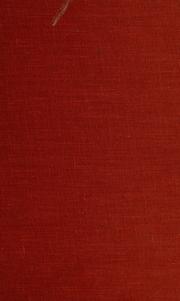Check nearby libraries
Buy this book

When Confederate men marched off to battle, white women across the South confronted unaccustomed and unsought responsibilities: directing farms and plantations, providing for families, and supervising increasingly restive slaves. As southern women struggled "to do a man's business," they found themselves compelled to reconsider their most fundamental assumptions about their identities and about the larger meaning of womanhood.
Drew Faust offers a compelling picture of the more than half-million women who belonged to the slaveholding families of the Confederacy during this period of acute crisis.
According to Faust, the most privileged of southern women experienced the destruction of war as both a social and a personal upheaval: the prerogatives of whiteness and the protections of ladyhood began to dissolve as the Confederacy weakened and crumbled.
Faust draws on the eloquent diaries, letters, essays, memoirs, fiction, and poetry of more than 500 of the Confederacy's elite women to show that with the disintegration of slavery and the disappearance of prewar prosperity, every part of these women's lives became vexed and uncertain.
But it was not just females who worried about the changing nature of gender relations in the wartime South; Confederate political discourse and popular culture - plays, novels, songs, and paintings - also negotiated the changed meanings of womanhood.
Exploring elite Confederate women's wartime experiences as wives, mothers, nurses, teachers, slave managers, authors, readers, and survivors, this book chronicles the clash of the old and the new within a group that was at once the beneficiary and the victim of the social order of the Old South. Mothers of Invention show how people managed both to change and not to change and how their personal transformations related to a larger world of society and politics.
Beautifully written and eminently readable, this study of women and war is a pathbreaking and definitive study of the forgotten half of the Confederacy's master class.
Check nearby libraries
Buy this book

Previews available in: English
Subjects
History, United States Civil War, 1861-1865, Women, Vrouwen, Frau, Sezessionskrieg <1861-1865>, Sezessionskrieg, Soziale Rolle, American Civil War (1861-1865) fast (OCoLC)fst01351658, Südstaaten, United states, history, civil war, 1861-1865, women, Women, united states, history, Confederate states of america, history, Women, confederate states of americaTimes
Civil War, 1861-1865| Edition | Availability |
|---|---|
|
1
Mothers of Invention: Women of the Slaveholding South in the American Civil War
2010, University of North Carolina Press
in English
0807866164 9780807866160
|
zzzz
|
|
2
Mothers of Invention: Women of the Slaveholding South in the American Civil War (The Fred W. Morrison Series in Southern Studies)
October 13, 2004, The University of North Carolina Press
Paperback
in English
- New Ed edition
0807855731 9780807855737
|
zzzz
|
|
3
Mothers of Invention: Women of the Slaveholding South in the American Civil War
2000, University of North Carolina Press
in English
0807863327 9780807863329
|
zzzz
|
|
4
Mothers of invention: women of the slaveholding South in the American Civil War
1997, Vintage Books
in English
- 1st Vintage Books ed.
0679781048 9780679781042
|
zzzz
|
|
5
Mothers of invention: women of the slaveholding South in the American Civil War
1996, University of North Carolina Press
in English
0807822558 9780807822555
|
aaaa
|
Book Details
Edition Notes
Includes bibliographical references (p. 259-312) and index.
Classifications
The Physical Object
ID Numbers
Source records
Scriblio MARC recordCollingswood Public Library record
Ithaca College Library MARC record
Library of Congress MARC record
Internet Archive item record
Internet Archive item record
OpenLibraries-Trent-MARCs record
marc_openlibraries_phillipsacademy MARC record
marc_openlibraries_sanfranciscopubliclibrary MARC record
Marygrove College MARC record
Internet Archive item record
Better World Books record
Library of Congress MARC record
marc_nuls MARC record
marc_columbia MARC record
Excerpts
Community Reviews (0)
Feedback?| July 29, 2024 | Edited by MARC Bot | import existing book |
| August 1, 2020 | Edited by ImportBot | import existing book |
| July 31, 2020 | Edited by ImportBot | import existing book |
| February 14, 2020 | Edited by MARC Bot | remove fake subjects |
| December 10, 2009 | Created by WorkBot | add works page |
















